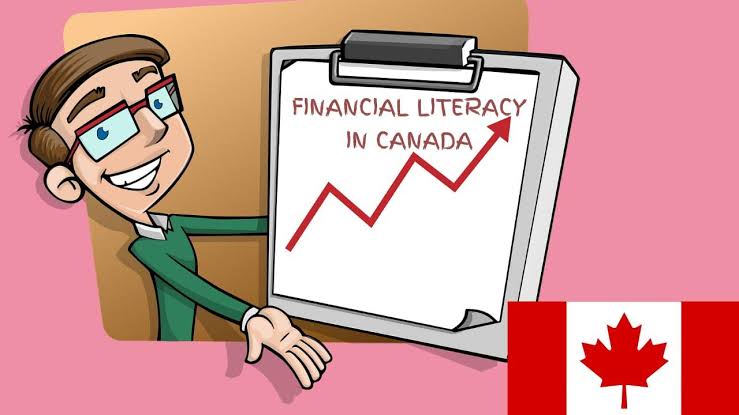Financial literacy is more than just understanding how money works — it’s about having the knowledge, skills, and confidence to make informed financial decisions throughout life. In Canada, where the economy is complex and diverse, financial literacy has become increasingly vital for individuals, families, and communities. As of July 2025, the Canadian government, schools, and financial institutions have continued to emphasize the importance of financial education in helping people secure their futures and navigate everyday financial challenges.
Understanding basic concepts such as budgeting, saving, investing, credit management, and taxation is crucial. With rising living costs, digital financial tools, and a wide range of available financial products, Canadians face more choices and more risks than ever before.
The Role of Financial Literacy in Everyday Life
Financial literacy impacts nearly every aspect of a Canadian’s life. From choosing a mortgage to managing student loans or understanding retirement options, financially literate individuals are better equipped to plan for both short-term needs and long-term goals.
A strong understanding of money helps Canadians:
- Avoid debt traps and high-interest loans
- Create and stick to a household budget
- Prepare for emergencies through savings
- Make sound investment decisions
- Understand tax responsibilities and benefits
Without financial literacy, individuals may struggle with managing their income, fall victim to scams, or miss out on opportunities to grow their wealth. In contrast, financially literate Canadians can build stability, reduce stress, and increase their overall quality of life.
Financial Literacy in Canadian Schools and Institutions
Recognizing the significance of early education, several Canadian provinces have embedded financial literacy into their school curricula. For example, Ontario includes mandatory financial literacy components within math and business courses starting from Grade 4 through high school.
Post-secondary institutions and community programs have also stepped in, offering workshops and courses on financial topics such as budgeting, managing student debt, and investing basics. Financial institutions like banks and credit unions frequently partner with schools and non-profits to deliver this training, especially to underserved communities.
This growing emphasis ensures that young Canadians leave school with the tools to navigate their financial independence.
Financial Literacy and the Immigrant Population
Canada welcomes thousands of newcomers each year, many of whom face unique financial challenges as they adjust to a new financial system. Financial literacy is especially important for immigrants who must understand Canadian banking, taxes, credit scores, and cost of living.
To support this, government-funded settlement agencies often provide financial orientation sessions and access to multilingual resources. Topics typically include:
- Opening a bank account
- Understanding Canadian currency and payment systems
- Establishing credit history
- Understanding income tax and government benefits
- Saving for housing and education
Empowering immigrants with this knowledge helps them integrate more smoothly into Canadian society and avoid financial pitfalls during the transition.
The Impact of Digital Finance and Online Tools
In the digital age, managing money has shifted from physical banks to smartphones and apps. Canadians now rely on online banking, robo-advisors, mobile wallets, and digital investing platforms like Wealthsimple or Questrade.
While these tools offer convenience and accessibility, they also require a baseline of digital financial literacy to use them wisely. It’s easy to overspend with tap-to-pay features or misunderstand the risks of high-yield investments advertised online.
Financial literacy in 2025 also includes the ability to:
- Detect and avoid online financial scams
- Understand the implications of data sharing with financial apps
- Compare online financial products effectively
- Interpret data from online credit reports and financial dashboards
Canadians must now navigate a digital landscape that evolves rapidly, and being financially literate means staying aware of both the opportunities and the risks.
Credit, Debt, and Consumer Behavior
Credit is an essential part of Canadian financial life — from credit cards to car loans and mortgages. However, misuse or misunderstanding of credit can lead to long-term financial damage.
Financial literacy helps Canadians:
- Understand credit scores and how they are calculated
- Use credit responsibly and avoid excessive debt
- Recognize the cost of borrowing (interest rates, fees, penalties)
- Distinguish between good debt (e.g., education, housing) and bad debt (e.g., payday loans)
Programs like the Financial Consumer Agency of Canada (FCAC) provide guides and tools to help citizens make better borrowing decisions and avoid predatory lenders.
Government and Community Efforts
The Canadian government has prioritized financial literacy through national strategies and campaigns. The National Financial Literacy Strategy 2021–2026 continues to guide policy and action, focusing on reducing barriers to financial education and promoting equity across all demographics.
Community-based organizations across provinces also provide free services such as:
- Tax clinics
- Budgeting workshops
- Financial coaching
- Rent and debt management advice
These efforts are particularly beneficial for Indigenous communities, low-income individuals, youth, and seniors — groups who may be more vulnerable to financial insecurity.
Key Benefits of Financial Literacy
- Improved Decision-Making – Individuals can compare products and services effectively.
- Increased Financial Security – Knowledge leads to better savings, investment, and retirement planning.
- Reduced Stress and Anxiety – Financial clarity contributes to peace of mind.
- Stronger Communities – Households that manage money well contribute to overall economic resilience.
- Better Use of Government Resources – Informed citizens are more likely to take advantage of available benefits and avoid unnecessary hardship.
Conclusion
Financial literacy is a foundational skill that empowers Canadians to build a secure and fulfilling life. In today’s economy, where financial products and technologies are evolving quickly, understanding money has become just as important as earning it.
Whether through school education, community resources, or personal learning, investing in financial literacy pays long-term dividends. As more Canadians become financially informed, the entire nation benefits from a healthier economy, reduced inequality, and greater social wellbeing.



